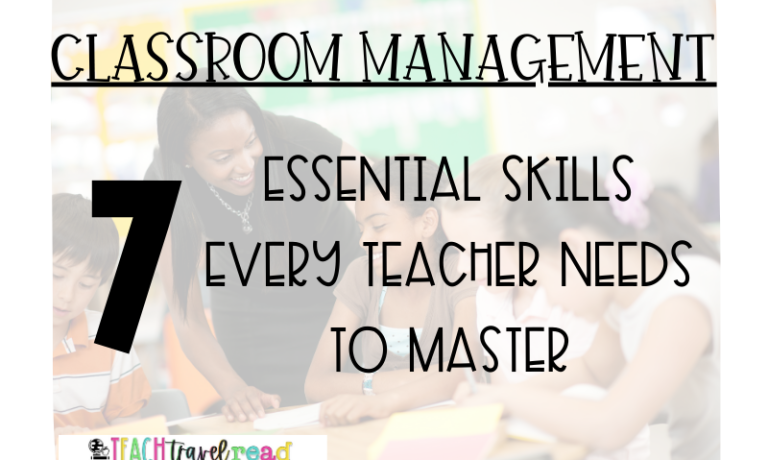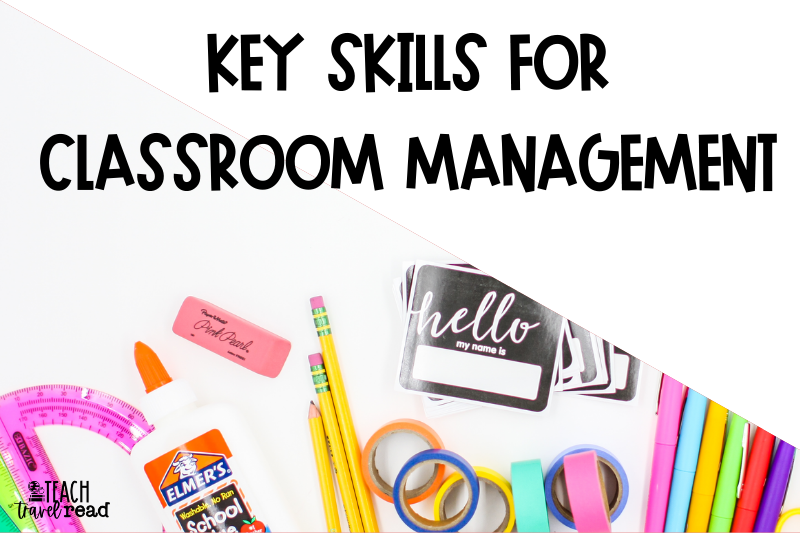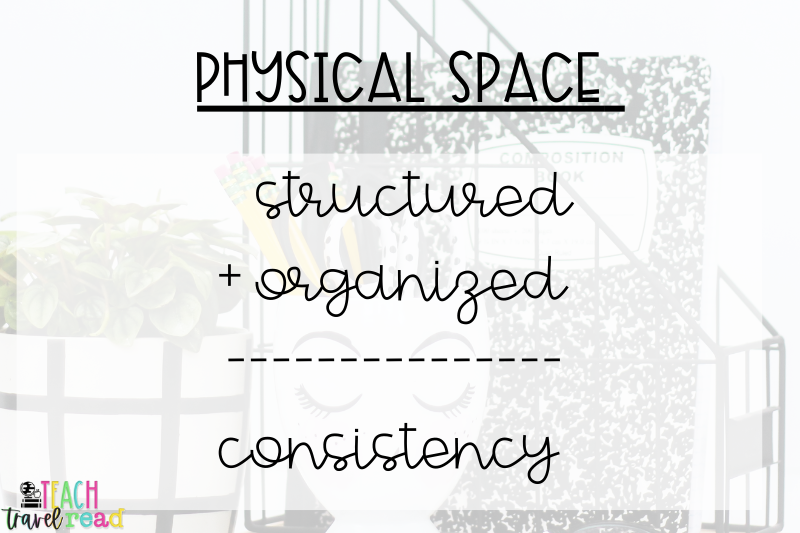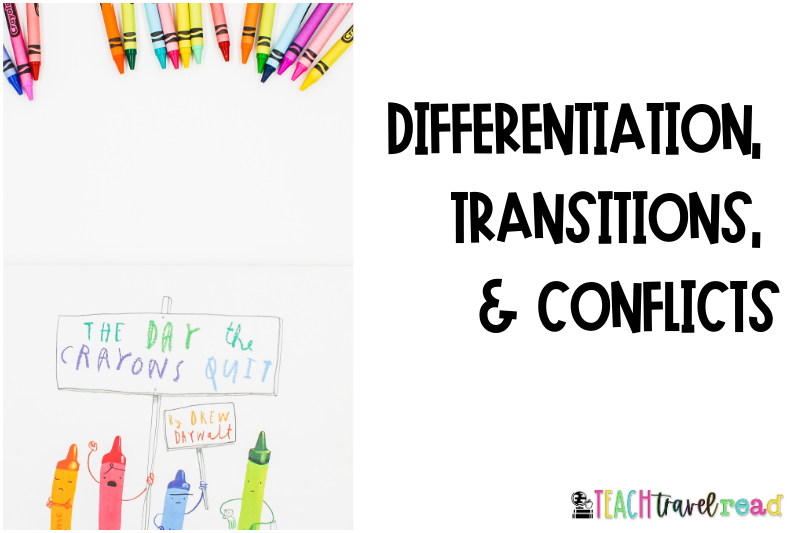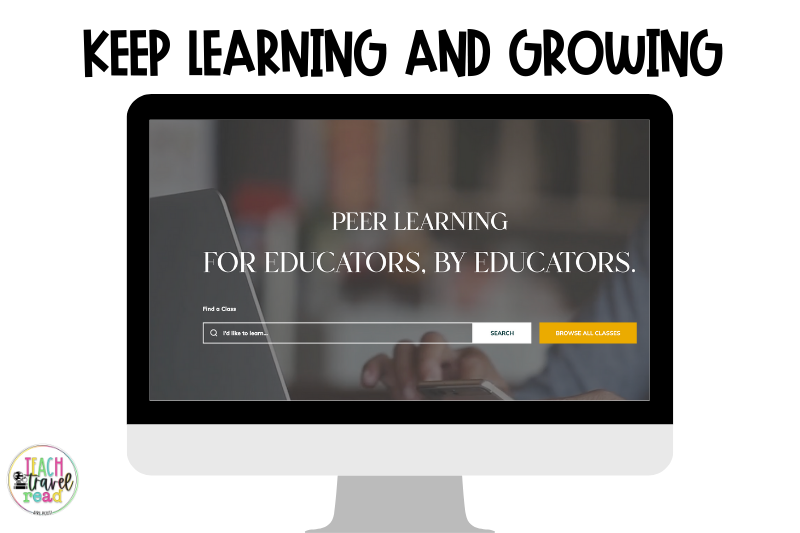Are you a teacher looking to enhance your classroom management skills? Look no further! Education is always changing and effective classroom management is crucial to creating a positive and productive learning environment.
Whether you are a veteran teacher or just starting your teaching journey, mastering classroom management in the upper elementary classroom is essential for fostering engaged and motivated students. The following tips will equip you with the vital skills needed to create a well-managed classroom that promotes student success. From establishing clear expectations to implementing effective behavior management strategies, we will explore various techniques that have proven to be successful in managing diverse classrooms.
Get ready to transform your teaching experience and create a classroom environment where both you and your students thrive! So, let’s dive in and discover the fundamental principles and strategies that will revolutionize your classroom management game.
The Importance of Classroom Management
Without effective classroom management, student learning cannot occur. It sets the tone for the entire classroom and creates an atmosphere where students feel safe, respected, and engaged. When classroom management is done well, students are more likely to be focused, motivated, and eager to learn. On the other hand, poor classroom management can lead to disruptions, disengagement, and a negative learning experience for both students and teachers.
Let’s discuss some of the key benefits of classroom management.
Effective classroom management helps establish a sense of order and structure, allowing for smooth and efficient learning activities. When students know what is expected of them and understand the rules and routines of the classroom, they are better able to engage in meaningful learning experiences.
Classroom management contributes to the development of positive relationships between teachers and students. By creating a supportive and respectful classroom environment, teachers can foster trust and rapport with their students, leading to improved student motivation, engagement, and academic achievement. Additionally, a well-managed classroom promotes a sense of community and collaboration among students, enhancing their social and emotional development.
Key Skills for Effective Classroom Management
To become a master of classroom management, teachers need to develop a range of essential skills. These skills go beyond simply enforcing rules and maintaining order; they involve creating a positive and inclusive learning environment where students can thrive. Let’s explore some of the key skills that every teacher should master.
Establishing Rules and Expectations
Starting on day one of the school year, create clear and consistent rules and expectations. When students know what is expected of them in terms of behavior, academic performance, and participation, they are more likely to meet these expectations. Teachers should involve students in the rule-setting process, allowing them to contribute to the development of a positive classroom culture. The rules/expectations must be communicated clearly and reinforced consistently to ensure students understand and internalize them.
Building Positive Relationships with Students
Building positive relationships with students is at the heart of effective classroom management. When students feel valued, respected, and supported, they are more likely to be engaged and invested in their learning. Teachers can foster positive relationships by getting to know their students on a personal level, showing interest in their lives and aspirations, and providing individualized support when needed. Additionally, creating opportunities for collaboration and teamwork can help students develop social skills and contribute to a positive classroom atmosphere.
Creating a Structured and Organized Classroom Environment
A structured and organized classroom environment is essential for smooth and productive learning experiences. Teachers should create a physical space that is designed for learning, with clearly defined areas for different activities and materials easily accessible to students. Also, teachers need to establish routines and procedures for various classroom activities, such as entering and exiting the classroom, transitioning between lessons, and completing assignments. Consistency and predictability in the classroom environment help students feel secure and confident in their learning.
Implementing Effective Behavior Management Strategies
Behavior management is crucial to effective classroom management. Teachers must be equipped with strategies to address both positive and challenging behaviors. Positive reinforcement, such as praise and rewards, can encourage desired behaviors and motivate students to excel. On the other hand, teachers should also have strategies in place to address disruptive or inappropriate behaviors promptly and consistently. These strategies may include verbal cues, redirection, and logical consequences. By addressing behaviors in a fair and consistent manner, teachers can maintain a positive classroom climate and ensure that all students have the opportunity to learn and succeed.
Hopefully, your school has a behavior management system in place for both positive and challenging behaviors. I highly recommend following those expectations, but also including your own classroom management techniques that fit your personality and teaching style. For example, I love to play games. So, I use game-based classroom management strategies to enhance the behavior management expectations set by the school.
Differentiating Instruction to Meet Individual Student Needs
Every student is unique, with different learning styles, abilities, and interests. Effective classroom management involves the ability to differentiate instruction to meet the diverse needs of students. Teachers should be aware of their students’ individual strengths and weaknesses and provide appropriate support and accommodations. This may involve adapting lesson plans, using a variety of instructional strategies, and providing additional resources or assistance. By differentiating to individual needs of students, teachers can create an inclusive and engaging learning environment where all students can thrive.
Managing Classroom Transitions and Routines
Transitions between activities and routines are often challenging for students and can disrupt the flow of the classroom. Effective classroom management requires strategies to manage these transitions smoothly. Teachers can use visual cues, timers, and clear instructions to help students transition between activities efficiently. Also, establishing consistent routines for common classroom tasks, such as handing in assignments or getting materials, can help students develop self-regulation skills and reduce disruptions.
Dealing with Challenging Behaviors and Conflict Resolution
In every classroom, teachers are likely to encounter challenging behaviors and conflicts among students. Effective classroom management involves the ability to address these situations in a calm and constructive manner. Teachers should have strategies in place to de-escalate conflicts, encourage empathy and understanding, and promote problem-solving skills. By teaching students how to manage conflicts positively, teachers can create a respectful and inclusive classroom environment where students feel safe and supported.
Professional Development Opportunities for Improving Classroom Management Skills
Managing Classroom Transitions and Routines
Mastering classroom management is an ongoing process that requires continuous learning and professional development. Thankfully, there are various opportunities available for teachers to enhance their classroom management skills. Professional development workshops, conferences, and online courses provide valuable insights, strategies, and resources for effective classroom management. Additionally, collaborating with colleagues, participating in peer observations, and seeking feedback can help teachers refine their classroom management techniques. By investing in professional development, teachers can stay updated with the latest research and best practices in classroom management and continuously improve their teaching practice.
Classroom Management Wrap-Up
Classroom management is an essential skill for every teacher. By mastering the art of classroom management, teachers can create a positive and productive learning environment where students thrive. By establishing clear expectations, building positive relationships, creating a structured environment, implementing effective behavior management strategies, differentiating instruction, managing transitions, and addressing challenging behaviors, teachers can create an inclusive and engaging classroom that promotes student success. Remember, mastering classroom management is an ongoing process, and continuous professional development is key to staying ahead of the curve. So, embrace the challenge, refine your skills, and transform your teaching experience with effective classroom management. Your students will thank you for it!

